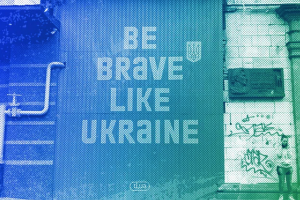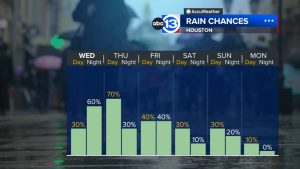As the world marked a tragic milestone on Saturday, we should remind ourselves that Ukraine’s progress as a full-fledged democracy shook the seat of power in Moscow to its core, Aleksandar Đokić writes.
On Saturday, the world marked a tragic milestone: the 500th day of Russia’s full-scale invasion of Ukraine, an all-out escalation of the Kremlin’s war against Ukraine that has been taking place since 2014, when Moscow troops first entered Crimea and then the Donbas regions of Donetsk and Luhansk.
Even after all this time, some Europeans still struggle to understand the reasons for Vladimir Putin’s act of aggression.
Yet, the main driving force is clear: Ukraine’s progress towards a full-fledged democracy had shaken the seat of power in Moscow to its core.
NATO enlargement was never the issue
Some might recall that, in an ominous essay published on 12 July 2021, Vladimir Putin himself labelled Ukraine as an “anti-Russia”.
The essay itself, mostly disregarded at the time, turned out to have been the ideological and conceptual blueprint for the invasion which would follow only half a year later.
The main argument that Putin made — and that became the framework for his justification of the invasion — was that Ukraine was being prepared as a “staging ground against Russia” by NATO and the collective West.
The “Ukraine is ‘anti-Russia'” trope was then reiterated many times by Russia’s high-ranking officials since the onset of the 2022 invasion.
This is where some Western adherents to Cold War realism — a school of thought which is a part of international relations, a subdiscipline of political science — would argue that the war is all about NATO enlargement.
In their opinion, Putin was convinced of an actual military staging ground being prepared in Ukraine, which Russia, as a rational actor, would find most distressing, as this process of arming Kyiv was taking place right on Russia’s borders.
In reality, there was never any possibility or desire either by Ukraine or NATO to attempt to endanger Russia in military terms.
If anything, Western actors have, by and large, attempted to appease Putin through diplomatic means, even when it was clear that Moscow forces were on their way to take control of Kyiv and Ukraine back in February 2022.
We can observe this desire to tread carefully even after 500 days of the all-out war, with the US weighing every new arms supply to Ukraine against the possibility of the war escalating any further.
In Putinspeak, ‘Anti-Russia’ means not being an imperialistic mafia state
Putin was, however, right — but in a completely different sense. Ukraine was gradually indeed becoming an “anti-Russia” by means of the democratic, freedom-loving spirit of its people.
By 2014 and following the events of Euromaidan, the citizens of Ukraine had opted for a political and economic transition that would lead them away from the grips of the Kremlin and root their country deep within the more politically and economically advanced part of Europe.
With Russia being an autocratic, imperialistic, geriatric mafia state, Ukraine decided to become the opposite.
Ukraine was set on its way to becoming a modern liberal democracy with functioning laws and institutions, where human rights are respected, foreign investment capital is attracted, and the ruling government can be replaced in free elections.
Then Russia started the war back in 2014, annexing Crimea and aiding and abetting the parastates in the Donbas.
Can you imagine Russians having such a free, progressive, prosperous neighbour on their own border and, by their own worldview, within their cultural sphere, and not wanting a better life for themselves, too?
Putin knew that. And he understood he had too much to lose.
A successful Ukraine is a direct threat to Putin’s regime
Most ordinary Russians do not feel that Ukraine or Belarus are actual foreign countries — a belief shared by the ruling circles in Moscow.
If it weren’t for the war against Ukraine raging on for nine years straight, this feeling could be taken as benign cultural closeness. Yet, ever since 2014, this sentiment has grown into an outright imperialist desire to occupy and rule by hook or by crook.
This terrifying sense of “closeness at all costs” is exactly the reason why Ukraine, as a successful democratic and economically developed nation, would pose a direct threat to Putin’s regime, first and foremost.
It has nothing to do with the fact that Russia borders Ukraine because Russia also borders Finland or the Baltic states; Russians do not consider these countries to be “one of their own”.
The same goes for Poland, which has had great economic success in the past few decades after it freed itself from Moscow’s domination. Yet, in the eyes of ordinary Russians and the Kremlin establishment, it is still a foreign country.
At the same time, Russian society is accustomed to the rest of Europe being freer and further developed than their own country.
Ukraine’s successful EU path is a death sentence to the regime in Moscow
Ukraine and Belarus, however, have always been looked down upon with a sense of superiority. The two were viewed as Russia’s “younger sisters”, meaning, permanently less developed and on a lower cultural level. Russia was the centre, and Ukraine and Belarus were the provinces.
Belarus has been captured by Alyaksandr Lukashenka in a unique 1990s-style post-communist dystopia for the last three decades and, as such, poses no threat to Putin’s regime.
But Kyiv went down a completely different path, despite all the obstacles. This is why Ukraine’s progress towards democracy and growing closeness to the rest of Europe was seen as an existential threat number one.
NATO isn’t the primary issue here: Ukraine’s accession to the EU would be even more damaging to the Kremlin.
For instance, Ukraine’s NATO membership prior to 2014 would have ensured one thing — that Putin wouldn’t be in a position to invade it.
Ukraine joining the EU and reforming its political and economic system would have been — and still can be — a direct challenge to Putin’s autocratic and crony capitalism form of government and economic organisation.
In that sense, Ukraine would have truly become the kind of country which ordinary Russians envy in desperation. And although the initial invasion in 2014 was meant to put a stop to Ukraine’s progress, it succeeded in speeding up the process instead.
A democratic Russia is the only solution
As repetitive as it may sound, it has to be said once more: Russia’s national security interests were at no point threatened either by Ukraine or NATO.
The stability of Putin’s regime, on the other hand, is now potentially threatened if Ukraine continues to develop into a politically and economically advanced country in comparison to Russia.
Fast forward to 2022: the all-out invasion was merely a final attempt to remove the threat from rival Ukraine once and for all.
Rebuilding the empire or exploiting Ukraine’s economic resources as a motivation for war also play a significant part in Moscow’s logic, but they are welcome bonuses to the existential need of Putin’s regime to stunt the neighbouring country’s growth.
Conversely, a democratically ruled Russia would have no such necessity, as its ruling elite could be cyclically and willingly replaced, thus separating the fate of the regime from that of the state.
A democratic Russia would be glad to find a strong and developed partner in Ukraine. And the rest of Europe and the world would be pleased to wake up to the news of a democratic Russia.
Source: www.euronews.com









